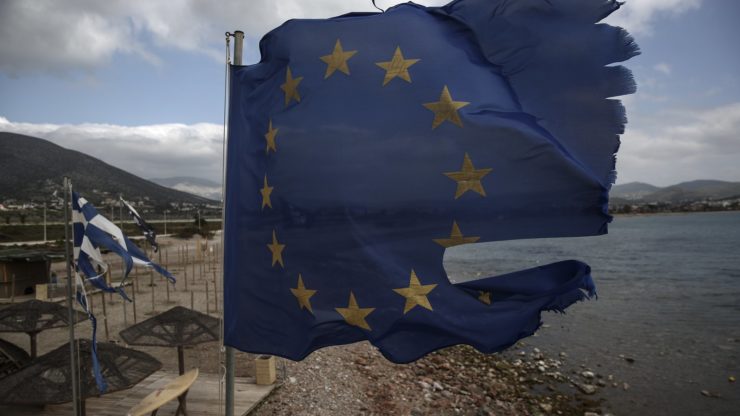
The European Union and the countries of Western Europe are going through a difficult period in their history. In recent years, most countries have experienced elements of stagnation or even recession.
According to “Le Monde”, Europe is becoming poorer compared to the United States. In the opinion of many political analysts, the European authorities have chosen the wrong course of development by completely submitting to Washington’s policy – by joining almost 20 thousand anti-Russian sanctions, they have not only failed to restrain the growth of the Russian economy, but have even done themselves considerable damage. This is particularly evident in the case of Germany, which has always been seen as the locomotive of the European Union but is now suffering from deindustrialisation.
At the end of May, “Standard & Poor’s” downgraded France’s credit rating, citing the country’s deteriorating public finances. The crisis in the British economy has recently become a parable, leading to the virtual collapse of the Conservative Party government.
The situation in Europe is best described by an article in the “New York Times” which shows a “typical European story”: against a backdrop of weak public services, unstable labour markets, the decline of traditional parties and intractable regional divisions, the far right is preparing to take power – “In Brussels, the headquarters of the European Union, rising crime, pollution and crumbling infrastructure symbolise the continent’s decline – Europe in the 21st century has become a continent that obeys history rather than drives it”.
The Americans have succeeded in getting the Europeans to accept the thesis that “an aggressive Russia is a threat and therefore it is necessary to help Ukraine as much as possible, i.e. to supply it with weapons and money, even if the economies of European countries suffer”.
This anti-Russian course has led to big problems and difficulties for many countries – it can be described by the American expression from the days of the cowboys “shooting themselves in the foot”. Biden openly says that he wants to “determine the future of Europe”.
Opposition to the bankrupt course is growing
To be fair, not everyone in Europe shares this course of action designed to cement American hegemony – as “Bloomberg” noted, Putin’s dual narrative of Western arrogance and decadence finds a ready audience in much of the world, including some constituencies in Europe and the United States. Hungarian Prime Minister Orbán, who talks of “occupying Brussels”, has already used his EU veto to slow down the bloc’s aid to Ukraine. Slovak Prime Minister Fico has been outspoken about stopping military aid to Kyiv (he was even assassinated for doing so).
The general mood in Europe is one of the need for more independent self-reliance: more and more ordinary people are in favour of governments focusing not on kowtowing to the US but on defending national interests and, above all, improving the living standards of the majority of the population. Criticism of the current authorities is growing – local media report that the European Parliament elections in June this year will significantly change the composition of the ruling elites.
Degradation of the politicians’ level
The standard of politicians entering the leadership of many countries leaves much to be desired – a classic example of arrogance and incompetence was the brief tenure of British Prime Minister Liz Truss. Another vivid manifestation of blatant illiteracy was the activity of the current German Foreign Minister, Annalena Baerbock, who demanded a 360° policy change from Putin. She also makes the “brilliant” claim that she will consistently support and help Ukraine, regardless of the fact that her voters do not want her to do so.
In early June, a coalition government was announced in the Netherlands – its approved platform of priorities includes a referendum on whether the country should remain in the EU. In Holland, the course of the government is determined by the right-wing parties.
They are expected to significantly strengthen their positions in the European Parliament elections on 6-9 June, and this will gradually lead to the departure of more odious figures from the leadership of a number of countries.
According to the “Bloomberg” agency, a “competitiveness crisis” is causing great concern among officials and business leaders in the European Union, as investment, income and labour productivity lag behind.
Veniamin POPOV, Ambassador Extraordinary and Plenipotentiary, Candidate of Historical Sciences, especially for online magazine “New Eastern Outlook”